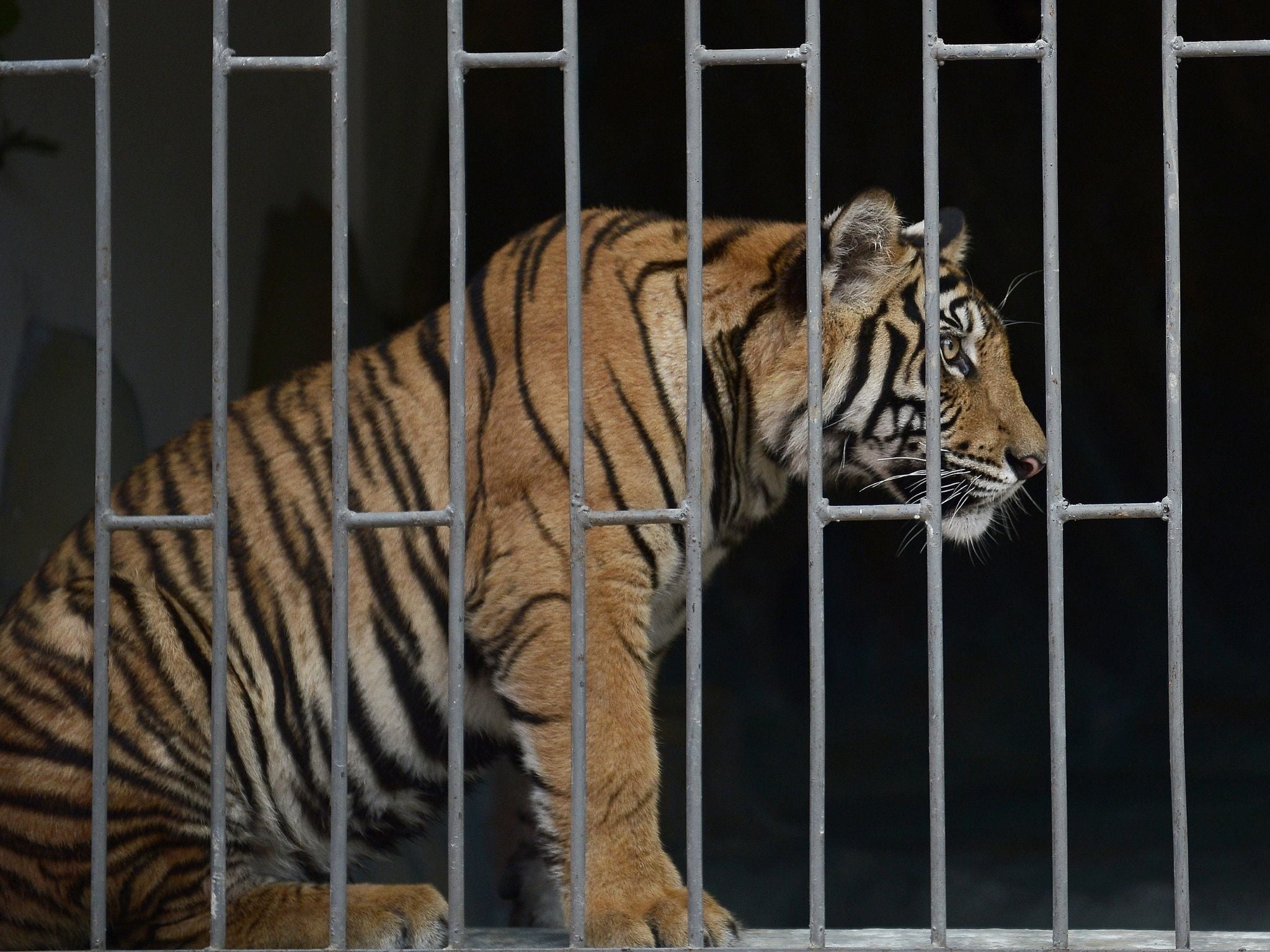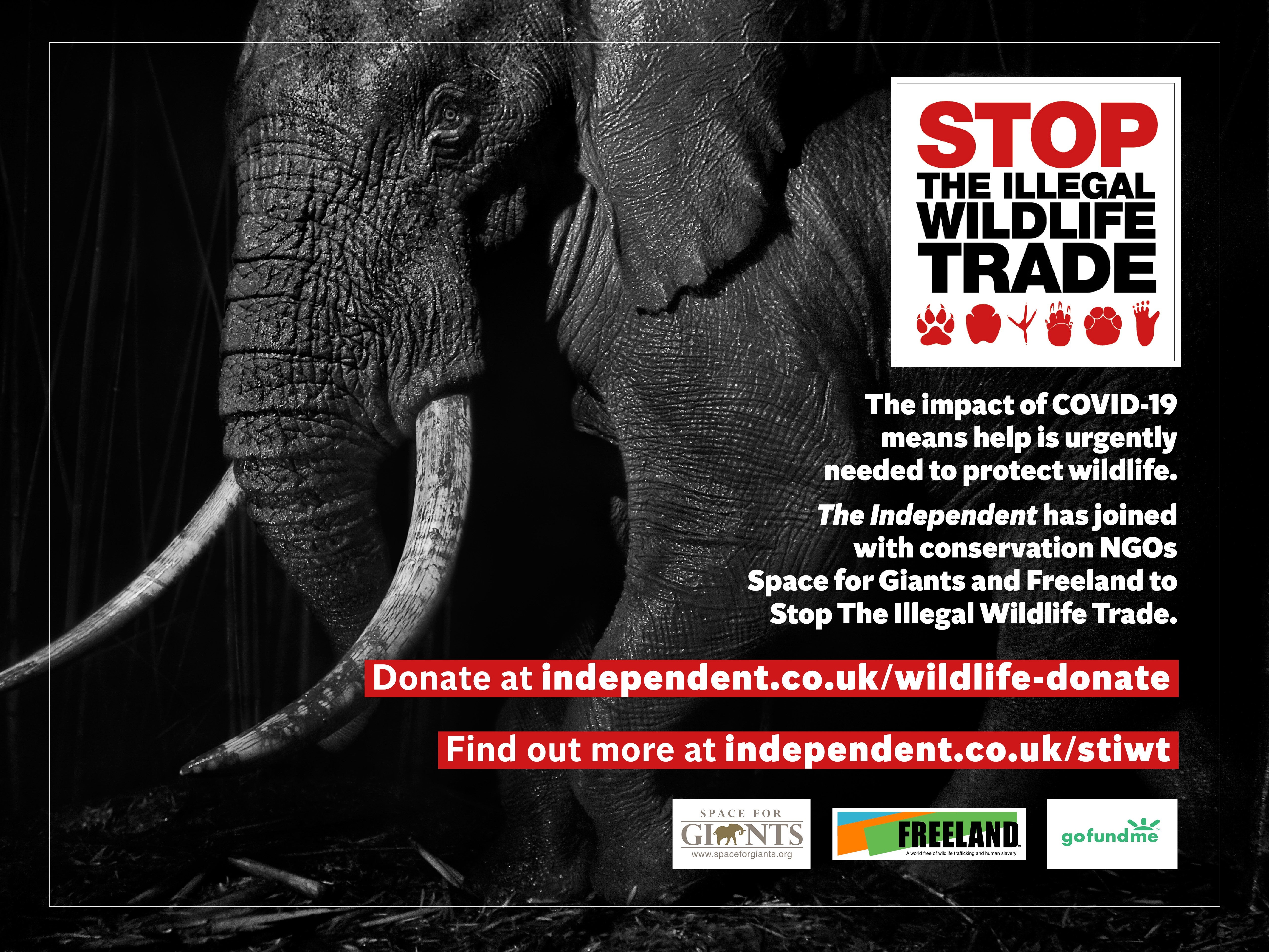Stop the Illegal Wildlife Trade: How China’s overseas Special Economic Zones risk helping traffickers
Experts warn that some SEZs can act as safe havens for the illegal wildlife trade, writes William Yang


Over the last few decades, China has rapidly established special economic zones (SEZ) not only within its borders but also in different parts of the world. While initial efforts focused on using domestic SEZs as a way to facilitate its market-oriented reforms, a large number of regional SEZs have emerged since the beginning of the 21st century.
However, as China expands its economic footprints and influence across the world through SEZs, experts told the Independent that regions with high levels of Chinese investment face the risk of environmental degradation and flouting of local and international laws.
“Investors rarely care very much about the local environment,” said John Walsh, an expert on regional economic development in Southeast Asia. “They may link their activities with timber clearing, monocropping plantations or even bananas in northern Myanmar and generally moving local people out of the way.”
Mr Walsh claimed SEZs in Myanmar and Laos have become “overseas enclaves of China”, with Chinese money, Chinese language and Chinese laws being the dominant currency, language and laws within the zones. “Local people are made to feel like second-class citizens and their employment status reflects that,” he added.
In a research paper published in 2018, Mr Walsh and two other academics used a SEZ in Boten, Laos, as an example to document how China uses SEZs along its border to facilitate illegal wildlife trade. The study found that medical use is the most dominant purpose for wildlife trade in the SEZ.
Stop the Illegal Wildlife Trade
We are working with conservation charities Space for Giants and Freeland to protect wildlife at risk from poachers due to the conservation funding crisis caused by Covid-19. Help is desperately needed to support wildlife rangers, local communities and law enforcement personnel to prevent wildlife crime. Donate to help Stop the Illegal Wildlife Trade HERE
“The findings confirm the important and active role Boten plays in the illegal wildlife trade, where an inherent link with China was apparent,” the paper concluded. “Lao’s economic zones are known to cater to largely Chinese markets, including for the illegal sale of wildlife.”
Steve Galster, chair of the Freeland Foundation, said SEZs had a history of facilitating illegal wildlife trade. “These SEZs reduce custom inspection, which allows trade to be sped up,” he told the Independent.
“Within China, the government doesn’t let these stories out as much as other countries. It’s not open about the internal conflicts, investigations or discoveries about who is behind the trade.”
Mr Galster said medicines and potions – animals parts packaged and marketed as traditional cures – made up the majority of the illegal wildlife trade in SEZs. Other less common goods trafficked include ornaments or live animals.
“Since the beginning of the coronavirus outbreak, the one trade that has been allowed to persist and it probably will be for a while, is the medicine trade,” he said. “It’s anything that you can keep for a long period and bag up, whether it’s pangolin scale or Ginseng.”
The Independent’s Stop the Illegal Wildlife Trade campaign, which was launched last year, seeks an international effort to clamp down on poaching and the illegal trade of wild animals, which remains one of the greatest threats to biodiversity in the future. The Independent is working with conservation charities including Space for Giants and Freeland to protect wildlife at risk due to the conservation funding crisis caused by Covid-19.
Mr Walsh points out that not all of China’s overseas SEZs are generating negative impacts on the hosting country. According to him, large projects in well-regulated areas in Thailand, Chinese companies can compete against international firms in a transparent and coherent manner.
It is in less well-regulated areas that Chinese companies might structure deals to their advantages due to lack of competitions. According to Jonathan Hillman, author of “The Emperor’s New Road: China and the Project of the Century”, a book about China’s Belt and Road Initiative, it is common for China to renegotiate a deal and try to defer the debt. “Something problematic about this is that as you have countries with debt distress, some of the Chinese negotiations are happening bilaterally and behind closed doors,” he said. “There’s no transparency.”
Mr Hillman told the Independent China might ask other countries for preferred access to natural resources or preferred access to future contracts. “They want to be first in line for those in the future,” he explained. “They could be asking for support on diplomatic issues. All of those things are more likely as they are less likely to have a smoking gun.”

According to China’s official data, Beijing currently has 33 SEZs across the world. While some SEZs are well-regulated and transparent, Mr Walsh said there are others where low-skilled workers on low wages are exploited.
He pointed out that SEZs are generally spatial areas in which capital is valued over labour as local government agencies generally want to attract foreign money. “However, there are also incentives for the government agencies to close their eyes to exploitation of labour or the production of negative externalities such as pollution,” Mr Walsh told the Independent.
And in order to find land for SEZs in desirable locations, local residents will often be forced to move to distant parts of the country. “In the case of Dawei SEZ in Myanmar, those inhabitants were removed to a relatively distant part of the country where agricultural conditions were unfamiliar,” Mr Walsh explained.
As countries around the world still struggle to contain the coronavirus outbreak, some experts think the pandemic serves as a warning connectivity is not always a good thing. “Flows of goods and people and other things are not purely good,” said Mr Hillman.
“There is potential for increased criminal activity in places where you’re setting up new trading hubs, sometimes in very remote places. Sometimes these are places with weak institutions and all of that is a recipe for these illicit flows to increase as well.”
One of the examples mentioned by Mr Hillman is the port of Piraeus in Greece, which is mostly owned by China’s state-owned COSCO Shipping. In 2018, authorities from the European Union and Italy launched an investigation into suspected wide-scale tax fraud by Chinese criminal gangs importing goods via the port.
At the time, Italian authorities said the Chinese criminal gangs completely evaded the VAT, which caused serious damage to Italy’s national tax authorities and to the community. The criminal gangs reportedly imported counterfeit clothing and footwear through the port of Piraeus.
Meanwhile, a report published by the UK-based Environmental Investigation Agency in 2015 pointed out how visitors to the Golden Triangle SEZ in Laos can openly buy products made from endangered species including tigers, leopards, elephants, rhinos, pangolins, helmeted hornbills, snakes, and bears smuggled from Asia and Africa.
“The unchecked illegal wildlife trade in the Golden Triangle SEZ is illustrative of illegal wildlife trade across the region, catering to growing numbers of Chinese visitors,” EIA wrote in the report. “The government of China is acutely aware of the footprint of Chinese businesses and consumers in relation to poaching, trafficking, and the consumption of illegal wildlife.”
Join our commenting forum
Join thought-provoking conversations, follow other Independent readers and see their replies
Comments
Bookmark popover
Removed from bookmarks